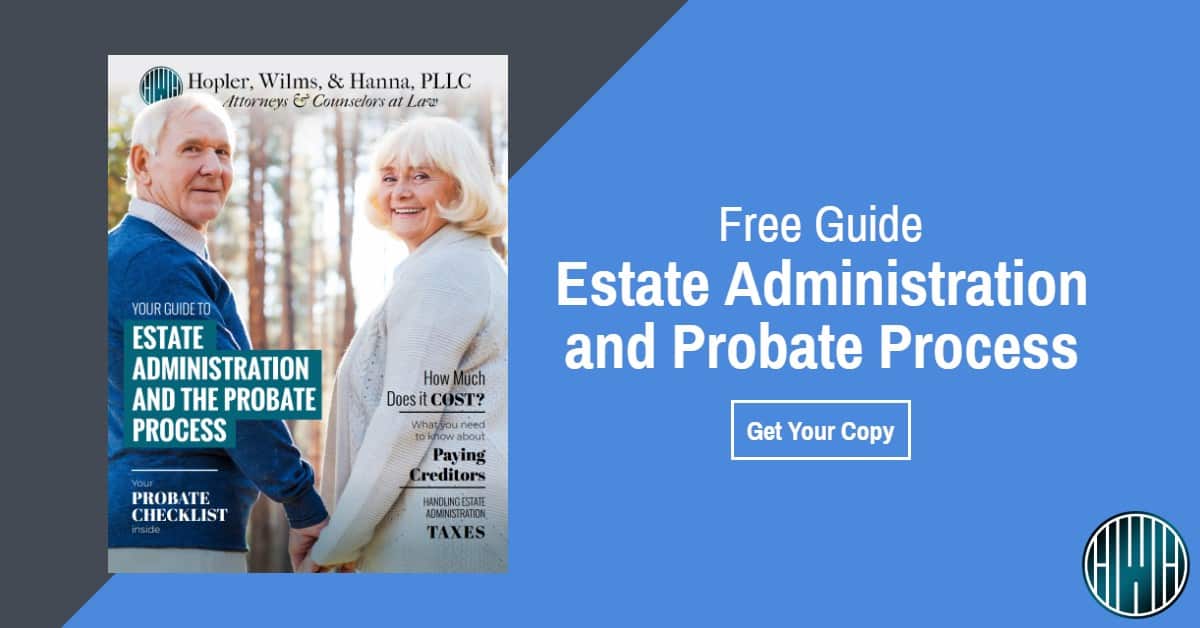Only two things in life are certain: Death and Taxes. Well sometimes, those two certainties coincide, and sometimes in very complicated ways. One of the most common questions we get is about inheritance tax.
It’s often a difficult time emotionally when someone passes. The death of a family member also forces family members to reconnect that were content with the distance. The inheritance laws might force people into joint ownership of property that may have never met, or might not even get along.
There is so much going on after a person passes away that strikes at the heart of why it’s such a trying time, but on top of that, the government will come for its pound of flesh, and you need to be ready.
While this is not a comprehensive list of all tax issues that arise when someone dies, these are the ones we most often see and look out for when a person dies. And don’t feel bad if you are confused… we have seen professionals crumble under the complexities of this process.
Many of the terms used are similar to one another and some of the tax issues that arise are unique to death, so if you haven’t gone through the process before, you may have never seen these issues arise.

First, let’s talk about final income taxes. When a person dies, they will have lived for some part of a year, and will possibly have earned income during that part of the year.
If that is the case, then if they had been living, they would have had to pay taxes on that income. Even though they died, the government does not excuse them from being a taxpayer for the year of their death. You’ll need to prepare an individual income tax return for the person’s last year of life. On the return, you’ll be able to mark that it’s the person’s final return.
However, keep in mind that a large number of people, during their final years of life, fail to file taxes, whether for lack of caring or for lack of ability. It is incredibly common for us to discover several years of unfiled returns, and we will have to backfile tax returns. It is important, if you don’t know whether or not the person filed, to check.
One issue that comes up in this process is a lack of information. Maybe you don’t have the 1099’s, W2’s, and other tax documents necessary to complete the tax return.
Or perhaps you don’t have the information necessary to backfile several years of returns if the person did not file. That’s okay. The IRS has a process where you can pull tax transcripts to see if they filed and what was reported to the IRS during the relevant time periods by others, and you can file a return based on that information.
Another issue that can come up during this process is when tax documents do not accurately reflect the income. Until the date of death, the income a person earned is reported on their individual tax return. Income earned AFTER the date of death is earned by the person’s estate – not by them, or if there’s a named beneficiary on whatever asset (like a brokerage account), then the beneficiary earned that income. It can be very confusing trying to figure out how to split that.
An accountant can help you figure out how to accurately report that information so that the proper amount is reported on the final income tax return, and the proper amount is reported on the estate income tax return.
Estate Income Tax Return
Second, the estate income tax return, not to be confused with the estate tax return, should be considered. To be clear, an estate tax return is a completely separate thing from estate income tax returns, and we have seen accountants prepare the wrong one, so be especially careful to make sure when you speak about this with professionals, you clearly articulate what you mean.
An estate income tax return is the document you use to report income that the estate of the deceased person earned. If a stock is in an estate, and it pays a dividend, that is reported on an estate income tax return.
If an inherited IRA ends up in an estate, and a distribution is taken, causing a taxable event, then that gets reported on the estate income tax return. If a piece of real estate is in an estate, and it earns rental income, that also gets reported on this document.
Keep in mind, however, that in North Carolina the ownership of real estate is particularly odd. Title to real estate, unlike personal property, vests in the beneficiary or heir immediately at death, and often the income (and the costs to maintain the property) also vest immediately in the beneficiary. If this is the case, that income may belong on the beneficiary’s tax return and not on the estate’s return.
Sometimes, however, a Will or other estate administration tool may cause the real estate to be part of the estate, and in that case, the income would be estate income. You report estate income on a Form 1041.
One important thing to remember about estate income is that it is taxed at a MUCH HIGHER RATE, meaning it takes significantly less income (only about $12,000) to reach the highest tax bracket of 39.6%. This can eat up a tremendous amount of the income without proper planning. If income is distributed during the tax year (or during a small grace period after the end of the tax year), the tax liability can be punted to the beneficiaries and they can pay tax on the distributions at their much lower (probably much lower unless they happen to be very wealthy) tax rate.
Taking action proactively to plan for income distributions and picking a fiscal year that minimizes the tax to be paid are two things you can do to mitigate the burdens of estate income tax.
Estate Tax
Now, the one everyone always asks about: DEATH TAXES, or the dreaded estate tax. This is completed on a Form 706 and is the tax that your deceased loved one’s estate must pay within 9 months of death which is only due because the person died and really for no other reason.
The good news is that the threshold of assets a person has to have before this is even a concern is so high that the vast majority of people need not concern them with this. As of the time of this writing, the estate tax exemption amount was over $11.5 million.
This means that unless your deceased loved one had this much property, it isn’t really a concern. If it is a concern, then once you exhaust the exemption, you’ll pay a death tax on the difference. Let’s say there’s an unused exemption amount when someone passes.
If the surviving spouse thinks they may need the difference for when they die, the surviving spouse has the option of adding the unused amount to their own exemption (that’s right, each spouse gets their own $11.5 million exemption), so the surviving spouse has a much higher exemption when they die.
This means if spouse number one didn’t use 5 million of their exemption, this 5 million gets added to spouse number two’s exemption, and the surviving spouse’s estate, when the surviving spouse dies one day, can claim an exemption of 16.5 million instead of 11.5 million. North Carolina does not have an estate tax.

Traditional IRA’s, 401(k)’s, and other retirement plans that are contributed to pre-tax and tax is paid upon withdrawal are also a common tax people pay. With the passage of the SECURE Act in 2020, most people are going to be required to distribute the proceeds of an inherited IRA within 10 years.
This is a significant departure from the law for many years which permitted stretching the account over the life expectancy of the person so very small distributions had to be taken when the person was younger. There are a number of exceptions for spouses, people under 18, people less than 10 years younger than the deceased person, and for disabled persons.
If, because of poor planning or otherwise, a retirement account ends up being part of a probate estate, meaning it does not pass directly to a named beneficiary and instead the estate of the person must take it, then often the requirement will be that the proceeds have to be distributed within 5 years.
If that happens, careful tax planning is required to minimize the burden. This may require a plan which considers the burdens of keeping an estate open for 5 years, the other income sources of beneficiaries, the best options for picking a fiscal year, and carefully scheduling distributions to punt tax liability to beneficiaries for lower tax rates.
Capital Gains
Keep in mind, too, the concept of capital gains. Often, but not always, an inherited asset will get a step up in basis, meaning when a person dies, the beneficiary of an asset gets a basis in the property of the fair market value on the date of death. This is a huge tax benefit. For example, if someone purchased a house in 1930 for $5,000.00, and now the property is worth $105,000.00, then there’s $100,000.00 of gain.
If the person tried to sell that property, there would be $100,000 subject to capital gains tax (keeping in mind that depending on various factors, there may be offsets to that liability). If that person gave that property to their child as a gift while they were alive, the child would have the same basis as the person, meaning if the child then sold it, they’d have the same gain to report.
If, however, the person dies, and the child inherits the house, the child gets a step up in basis, so if the house is now worth $105,000.00, the child’s basis is $105,000.00 and NOT $5,000.00. If the child sells the house for $105,000.00, then there is no gain. This does not just apply to real estate – it applies to nearly any appreciating asset, like stocks.
If the child holds on to that property and sells it later, or holds on to that stock and sells it years from now, the child may have capital gains, but it will be based upon the gain from the date of the person’s death and not the person’s purchase price.
North Carolina, along with 37 other states, has no estate tax, and has not had one for several years. If a person died many years ago, estate tax may be required. However, at the state level, you would still pay income tax for the person’s last year of life and would still pay estate income tax if the estate earned income. As for inheritance tax, which is a tax heirs to an estate might pay, also does not exist in NC, and only exists for six states.
While this is not a complete list of tax issues that can arise in the course of handling a person’s estate, these are by far the most common issues we either face or are asked about.
If you are handling the estate of a loved one and need assistance, our probate team is experienced, compassionate, and dedicated to a client service mantra that we need to treat the people dealing with this issue the way we would want to be treated if it were us going through it.
We are accessible, responsive, and lift the burden from those responsible for administering estates by providing sound advice and legal assistance.


